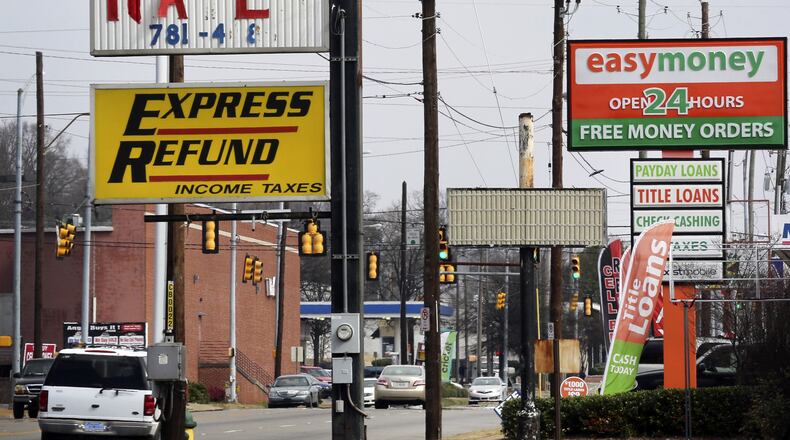An out-of-state lender will have to put up $15 million and possibly stand trial for allegedly violating Georgia’s law against payday lending, the state’s supreme court ruled.
In a unanimous decision released Monday, the Georgia Supreme Court rejected the lender’s petition to have the case in Fulton County dismissed.
Western Sky Financial, an online lender based in South Dakota, had argued that a Georgia state law prohibiting payday lending didn’t apply to out-of-state lenders.
The company, which is owned by a member of the Cheyenne River Sioux Tribe, also argued that it had sovereign immunity from Georgia lending laws.
But the Georgia Supreme Court rejected those arguments, essentially saying the company is subject to Georgia’s laws when it does business within the state.
Payday lenders are companies that make small short-term loans that carry high fees and interest rates, making them difficult for borrowers to pay off, according to critics.
Georgia lawmakers enacted the Payday Lending Act in 2004 to try to shut down high-cost loans of less than $3,000 that met certain criteria.
In 2013, Georgia’s attorney general sued Western Sky and two other companies that helped run the firm’s website and to service its loans, accusing them of violating Georgia law.
The Fulton County judge agreed with the state, ordering the company to stop lending in the state and to post $200,000 with the court to cover Georgians’ possible damages from the loans.
Western Sky appealed the ruling after the court boosted the amount to $15.3 million last year when the attorney general said Georgians had borrowed a much larger amount from the company.
Several other states have filed lawsuits against Western Sky and won lawsuit settlements of least $10 million, according to the Georgia Supreme Court.
Western Sky reportedly shut down in 2013, but there’s still an operating website at western-sky-loans.com that still takes loan applications by phone and online.
A “representative” loan, according to the website, had an annualized interest rate of 391 percent.
In June, the federal Consumer Financial Protection Bureau issued proposed national payday lending rules that would require lenders to determine that potential customers could pay back what they borrow.
About the Author
Keep Reading
The Latest
Featured


